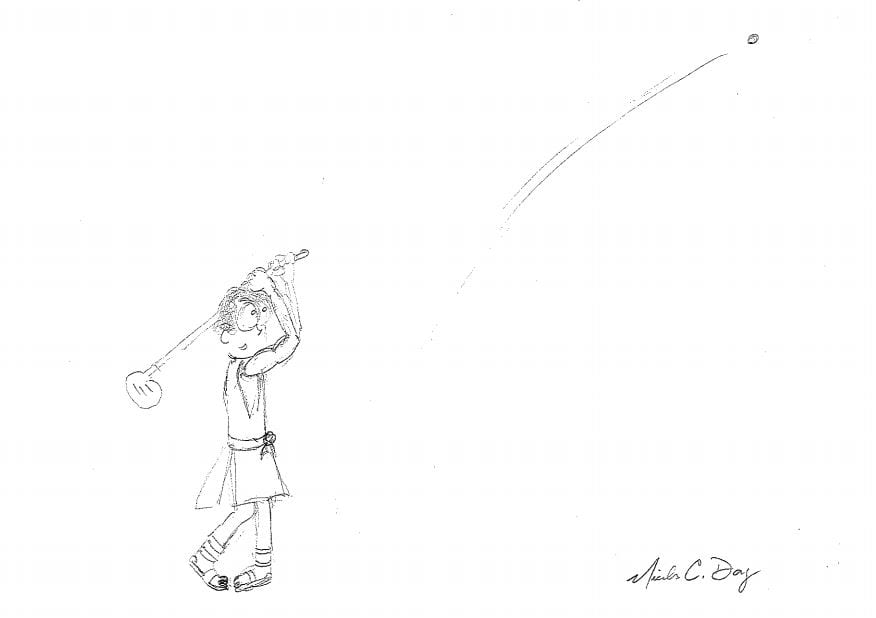The drama that we find in our churches today remind me of soap operas or telenovelas. We are one Church and have one Bible, and yet we act as though we are on opposites sides of the ring, just waiting for the referee to give us the go-ahead before we bash each other with our opinions about what GOD’S Word really means.
It is a puzzling thing to behold when churches of different denominations have such differing views and beliefs of what a Christian is, what we should believe and how we should portray ourselves to the world, and here I’m thinking that GOD’S Word is very clear on the matter! Based on news around the world and arguments that I have come across, these are the eight most controversial topics that we have subjected ourselves to:
Alcohol
Why are we so obsessed with this fermented beverage? The Bible forbids drunkenness, full stop. What else is there to know? We shouldn’t be asking ‘Can I have that glass of wine?’ but rather ‘Will that glass of wine make me tipsy?’. I have found that there are three types of Christians when it comes to alcohol: 1. “Jesus turned water into wine at the wedding in Cana, surely it’s okay to enjoy alcohol?”, 2. “Alcohol is the devil! It has destroyed the lives of many people- we will not touch it!” and 3. “I know that GOD forbids drunkenness, therefore I will not drink to excess, but if I have a conviction within me to refrain from drinking alcohol, then I will do so without judgement for those that continue to do so.”
In high school, when we still had a period for Christian teaching (the school has since removed it), a pastor told me that wine in the New Testament was not a fermented drink, but grape juice. I was surprised, to say the least, but I wasn’t sure if I believed him. I know that there are some churches that have collectively decided to refrain from any alcohol, I once attended such a church a few years ago. Each member would eventually make a covenant with GOD concerning this, as the Holy Spirit moved them. I do believe that GOD calls certain people to keep themselves from fermented drink (not entirely sure if this includes vinegar?) just as he did John the Baptist. I grew up in an Anglican church and they always used Old Brown Sherry for holy communion- as a child, I used to wonder what on earth I was drinking! Currently, I attend a Methodist church and they use grape juice for holy communion, but I do know that the members enjoy an ice cold beer on a hot day or a good glass of wine during dinner time. I personally do not like the taste of alcohol when drinking it, but it does wonders for a meaty dish or a creamy white sauce.
In all truth, should this really be a controversial topic? If you’re drinking to get drunk, then there is a problem.
Baptism
Oh, but church members love to argue about this. Some can be near self-righteous concerning the act of baptism. Before I had taken the time to study GOD’S Word, I believed that because I had been baptized as a child, then it was not necessary to be baptized as an adult. My resistance to being baptized was also linked to my embarrassment at the thought of being dunked under water in front of other people. Questions such as ‘Will I still remain modest when my clothes are wet on my body? What can I wear to cover up my form so that no one looks at me? Will I even do it the right way? What if people laugh?’ I was worried about the physical aspects of it instead of the spiritual. When I took it upon myself to study GOD’S Word, I began to see the importance of being fully immersed during baptism, not just the sprinkling of water I received on my forehead as a three-year-old in the Anglican church.
Some churches baptize babies and children, other churches have parents dedicate their children to the LORD, and others hold by a baptism that only takes place when you have personally accepted Jesus as your Saviour. This baptism takes place in a pool, a river, lake or anything that has enough water to thoroughly immerse the person.
I think of it this way: Jesus was baptized, Paul was baptized, and anyone else who professed Jesus as their LORD (in the Bible, such as the Ethiopian Eunuch) was baptized in a body of water. I rest my case.
Spiritual Gifts
Let’s be honest, this topic is more of a case of faith. Do we have the faith that the Holy Spirit can and will bestow spiritual gifts upon us? You see, I’m finding that the faith of the Church is failing them, not GOD Himself, therefore people are making all sorts of excuses as to why those gifts listed in 1 Corinthians 12: 1-11 are not what Paul states them to be. Crazy, huh? To cover up our own shortcomings, we distort the Word of GOD. Perhaps a pastor has fallen short because his faith is not true. We expect the pastor to have some spiritual gift, right? Maybe the gift of healing, speaking in tongues (not different languages in this case) or discernment of spirits. However, he doesn’t, so is he really Spirit-led? In order to avoid embarrassment, the pastor will create a lie and somehow back it up with Scripture, influencing the members of the church to believe his lie. I’m not saying that all pastors have to have the ‘big’ spiritual gifts, some have the gift of wisdom and knowledge etc, but it is true that many leaders in churches are twisting the Word of GOD and discrediting the Scripture that I mentioned above. Just because you cannot speak in tongues, does not mean that you won’t! GOD sees your heart. Do you want those gifts for His work, or do you want it for your own pride?
If you do not know what your spiritual gift/s is/are, then I would urge you to communicate with the Holy Spirit, to inquire of the LORD and ask Him about your gift/s. Quite a bit of fasting and prayer will be needed. Make sure that you do everything without doubting, because if you have some doubt, then you’re biting off your own nose to spite your face. Now, I do know that some people will receive their gifts at the very moment they accept Jesus, but that is how the LORD wills it for some. There’s no point in asking him about that. But be careful that the gifts are of the Holy Spirit and are not counterfeit gifts- this, Family, happens a lot in churches.
Type of Worship Music
Do we stick to the hymns, or do we mix it up with more modern worship music? Is it really a problem which one we use when we are worshiping GOD? There is a time and a place for different types of worship music. There is a time when a hymn such as ‘How Great Thou Art’ and ‘Amazing Grace’ are the only songs that can describe what we are feeling for our LORD, and there are also times when songs like ‘My Future Decided’ and ‘Do It Again’ can communicate the words that we wish to express in song form. I will say that I am not so keen when Christian music artists take a secular song and just change the words to fit our faith music. With so much suspicion and many conspiracies involving how songs and their tunes are created in the world of secular music, why would we take songs and tunes like ‘Single Ladies’ and ‘Havana’ and turn them into Christian songs?
There is a line that you should not cross when it comes to worship music. Every word, tune, tempo etc must be offered to GOD as praise, and only Him. The creation process must always have Him in mind. If the LORD Himself moves you to write a certain song and gives you the melody in your heart, then no amount of critics can take away that joy from you. We cannot take what is of the world, change up the words, and expect it to be okay.
If you only enjoy hymns, then you go ahead and enjoy those hymns. If you identify with more recent worship music, okay then. Our ages seem to dictate our taste in music. I’m caught in between; I find myself howling (crying) in utter abandonment when worshiping the LORD singing hymns, and jump around dancing like no one is watching when praising GOD with a more recent song.
Women in Leadership
I don’t have much to say about this, but other people sure do. Paul the Apostle said that women should remain quiet in the church and cover their heads. I don’t really know what was going on in the church at that time that he needed to write that. Were women interrupting services? Was this said in an effort to maintain the roles of men and women in marriage? If I think about Christ and His Church (aka husband and wife), the Church should remain silent when Jesus speaks, but I am sure that He would not expect them to not take part in their relationship. Women also have a part to play in the Church, that fact is undeniable, and it’s not just in the supporting role to men. GOD sees us as equals; men are not better than women and women are not better than men. GOD bestows spiritual gifts upon all of us, and we are all to use them according to His will. He has a plan for each and every one of us. Think of Deborah from the Book of Judges, or even Rahab. These women had vital roles to play in GOD’S plan for His people.
I agree, GOD made us differently, and we should rejoice in our femininity as women and masculinity as men. That’s not to say that women cannot be strong and men cannot show weakness, that’s quite stereotypical, isn’t it? I have probably ventured off the topic a bit, but it all boils down to the same thing. You do not need to have a woman in the pulpit in order to exercise equality in the church, but neither should you keep women from the pulpit. If the LORD has called a woman to preach, then don’t hinder her! Likewise, be mindful of the busybodies of the church that talk too much and cause dissension.
When it comes to hair covering, I do cover my hair when in church, when I’m praying and when I’m fasting. It was more of a personal decision, something between GOD and I. Women should pray about it, rather than start arguments about it.
Politics from the Pulpit
Talking about the political issues of your country in church so that the members may pray about it is one thing, but when you’re trying to get opinions swayed, trying to get support for a political party or causing division in the church because of politics, then it’s better left out. After all, people come to hear about GOD, not the latest news about the government or who is running for office for whatever agenda. If members of the church wish to know more about what is happening in their country concerning politics, then they need only watch the news. Let your time in the church be spent fellowshipping together, growing in wisdom, faith, and knowledge, strengthening love and praising GOD.
Abortion
Really? What part of ‘thou shalt not kill’ do people not get? If Jesus considers being angry with someone the same as committing murder, then why would we kill a defenseless baby? And that argument about the baby just being a fetus and therefore not human is absolute rubbish.
I covered a study some time back about Christians in Europe, and how there is growing support for legal abortion. What hope do these unborn children have if GOD’S people start to accept their murder? If GOD knew us before we were formed in our mother’s womb, then there is a plan for our lives. Each of those aborted babies had lives to live, but society decided that it was legal to kill them. It’s mass murder, really.
That After Pill is an abomination as far as I’m concerned. Once life has been formed, it is a life and is acknowledged by GOD. No amount of science and lies will cover up the sin of murdering a defenseless unborn baby.
These are perilous times indeed if the Church chooses to argue about such a heinous crime. We are here to protect life before birth and after birth. I am not advocating that we cause a raucous or judge people who have had abortions, but neither can we ignore the loss of life.
Gay Marriage
The Prince of the Air really is pushing this, isn’t he? Anything to defile the sanctity of marriage and GOD’S perfect plan for mankind. How can we, as the Church, water down GOD’S Word concerning this? Did GOD say that a man would leave his parents and be joined to his husband/partner? Nope. Did he create Greg as Adams helper? Nope. Was Eve created out of Samantha’s rib? Nope. We cannot use the excuse of love to turn a blind eye to this. Yes, GOD loves each and every person on this earth, but He certainly does not accept the sin in our lives. We should not confuse the two. We as Christians are called to love people, but that doesn’t mean that we agree with sin in their lives. If a gay/lesbian person calls themselves Christian, and yet they refuse to obey GOD concerning their sin, then we are told by Paul the Apostle to remove ourselves from them. But this concerns a Believer, not those who are not Christian. We have to understand that GOD hates sin! And it’s not just the sin of homosexuality, it’s also about lies, gossiping, slander etc.
Allowing a gay marriage in church is almost like flipping a bird at GOD, it’s unacceptable.
The early Church also had issues of their own. Paul talks about those who were teaching something other than what they had first heard and believed. Some were abusing the power that they had and were leading people astray- it’s all in the New Testament, I encourage you to go and read it. Those of us who have chosen to follow and obey GOD fully, who take the time to spend time with Him and study His Word, who take care in not grieving the Spirit and who discipline their flesh and make it subject unto Jesus, we are the ones that must remain immovable and the pillars of strength for those who are faltering. Speak the truth, no matter the cost.





















